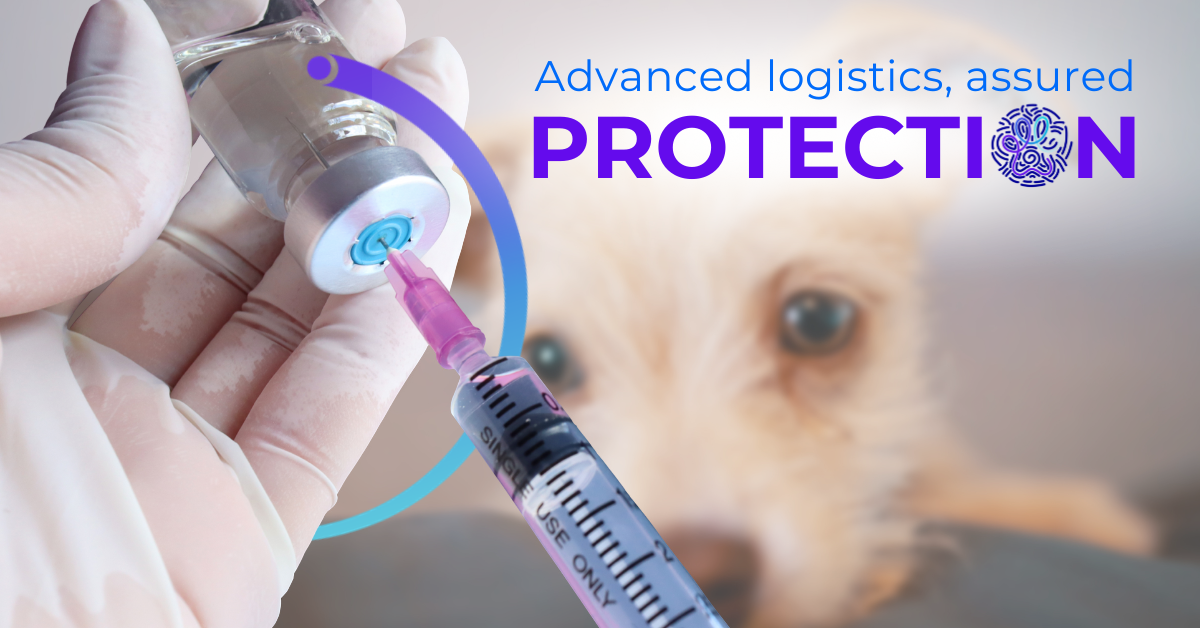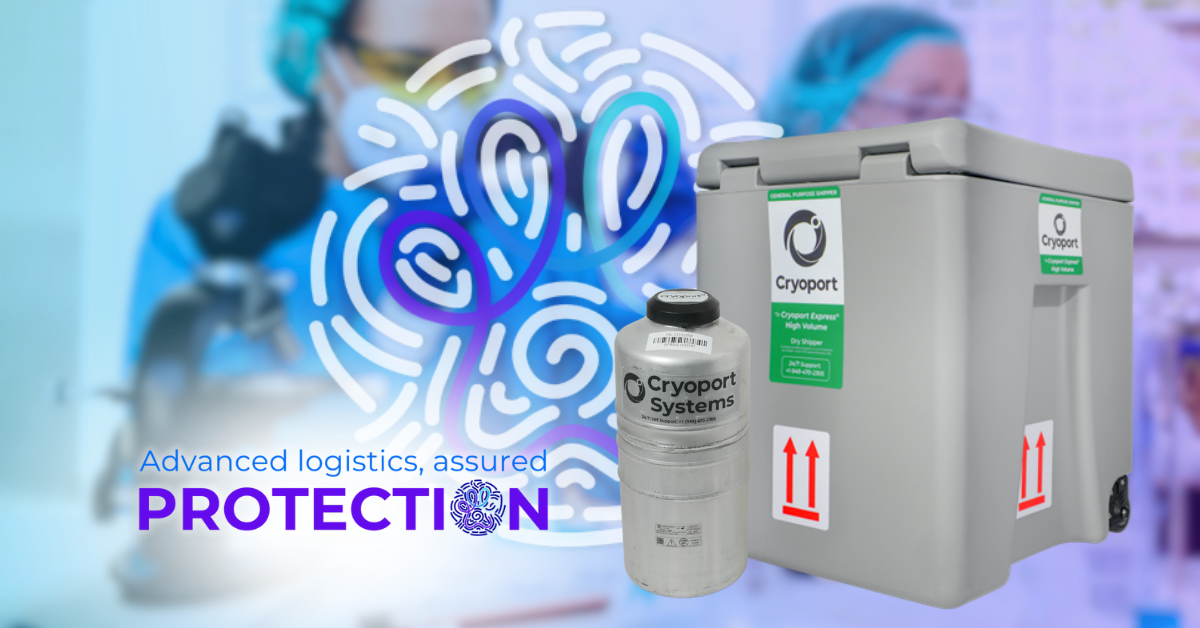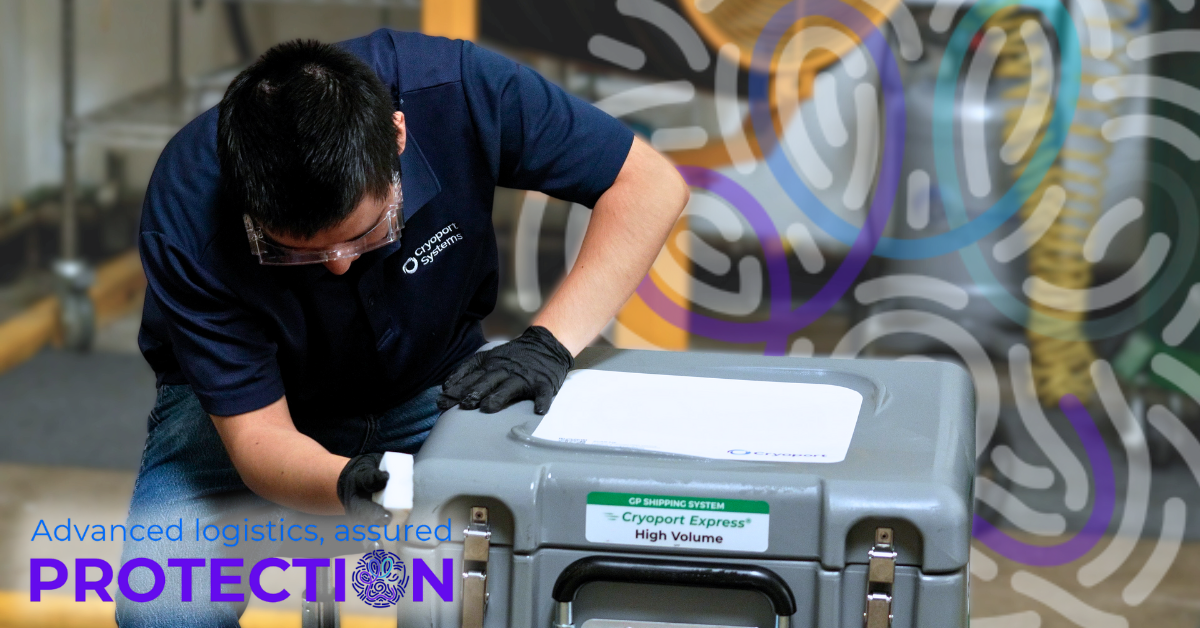
Why Animal Health Supply Chains Require Uncompromising Quality
Quality failures in animal health logistics do more than delay delivery, they put animal welfare at risk, threaten product efficacy, and erode public trust in veterinary medicine. Today’s biologics and vaccines are more complex than ever, often made with temperature-sensitive proteins, viral vectors, or living cells that only remain viable within strict environmental ranges. The cold chain has become a critical operational function that directly affects both clinical outcomes and commercial success.
The urgency is clear. The global animal biologics market is expected to grow at an 8.4% compound annual rate through 20281, with a large share tied to products that require precise temperature control. In this environment, quality is not a feature – it’s a necessity, one that is only intensifying.
The Rising Complexity of Animal Health Products
The animal health market is managing complexity at an unprecedented scale. Recombinant vaccines, cell-based immunotherapies, and monoclonal antibodies are now common for both livestock and companion animals. These products rely on fragile molecular structures that degrade when exposed to environmental stressors like temperature swings, humidity, or vibration.
At the same time, product development has gone global. Studies now enroll herds across continents to validate therapeutics for food animals, while specialty treatments for companion animals ship directly to veterinary hospitals and clinics around the world. Every step in the transportation journey, handoff, or customs inspection introduces new opportunities for temperature excursions or documentation errors.
Meanwhile, regulation hasn’t kept pace with this growth in complexity. Veterinary logistics still lack clearly defined standards in many regions, with few countries enforcing Good Distribution Practice (GDP) guidelines for animal biologics, and harmonized transport documentation is only starting to emerge. Without clear regulatory direction, manufacturers must take it upon themselves to apply human-health quality standards. Anything less increases variability and puts therapeutic performance at risk long before the product reaches the animal.
What Happens When Quality Fails
When logistics quality breaks down, the impact is immediate. Imagine a multivalent vaccine shipped in passive packaging with no real-time temperature tracking. After an unreported delay on a hot tarmac, the shipment arrives 8°C above spec. Without continuous data, there’s no way to determine if the inventory is still safe to use. The doses are discarded, disease control programs stall, and livestock are left unprotected.
Or imagine a cell therapy study for a canine cancer, where the trial depends on cryopreserved canine leukocytes that must stay below -150°C. A dry shipper that was never validated for hold time warms during a long customs delay. The result is lost samples, wasted time, and shattered expectations for pet owners and clinical teams alike.
Even something as routine as paperwork can cause a breakdown. A missing import permit or a misfiled airway bill can trap critical product at the border, shortening shelf life by the hour and threatening the entire study timeline.
These failures aren’t isolated. They can lead to costly remanufacturing, additional animal-welfare oversight, lost market opportunity, and damaged trust. In large food-animal programs, the stakes include herd immunity and food supply stability. For specialty therapeutics, every compromised dose is more than a simple financial loss on a balance sheet, it’s a setback for an emerging technology. Every breakdown in the supply chain puts both animals and the organizations that support them at risk.
Quality Systems That Protect the Supply Chain
For Cryoport Systems, quality isn’t a slogan or a talking point, it’s the backbone of everything we do. It’s a comprehensive approach to risk-mitigation, a system built to prevent problems before they happen. That system includes:
Validated shipping systems that are tested under worst-case conditions that include pressure-testing the longest transit times, highest thermal stress, and specific route challenges to make sure temperatures stay in range throughout a shipment’s full journey. With shipping systems designed for cryogenic (below -150°C), ultra cold (-60 to -80°C), refrigerated (2 to 8°C) and controlled room temperature (15 to 25°C), you can find the best fit to match your exact product stability needs.
Chain of Compliance® that guarantees that every step of the shipping process adheres to the highest quality standards, matching those required by human cell and gene therapies. Our proprietary Chain of Compliance approach integrates validated requalification procedures, segregates human- and animal-derived products, and maintains a complete history of equipment performance and location.
24/7 condition monitoring with devices that capture temperature, location, shock, humidity, and tilt in near real-time. Alerts allow our specially trained team of logistics experts to respond while shipments are still in transit should anything happen along the way that introduces risk, and detailed records are maintained for compliance and auditing purposes through our Cryoportal® logistics management platform for full visibility from pickup to final delivery.
Cryoport Systems uses these tools and processes that have been developed and proven in human pharmaceutical logistics to support animal health programs. We don’t wait for regulatory mandates, we deliver human-grade quality for every animal health shipment, ensuring our clients meet evolving expectations and protect the integrity of their products. Most importantly, our robust quality systems protect the animals whose lives depend on these therapies.
Building Quality into the Shipment Lifecycle
If you’re reviewing your current logistics process, these questions can help identify gaps:
- Validation: Have we tested shipments on our actual routes with real delays and worst-case timing?
- Visibility: Do we receive continuous data on temperature, location, and condition (and archive it)?
- Partner competence: Are our logistics providers trained in GDP and animal health biologics handling? Do they pass regular proficiency checks?
- Custody control: Do we have a full chain of custody, automatically tracked and accessible for root cause analysis?
- Process discipline: Do we review and stress-test our SOPs regularly against new products, routes, and risks?
These are more than audit questions, they reveal your readiness to protect animal health. Addressing gaps early helps you avoid costly disruptions and prepares you for scalable growth. Working with a partner like Cryoport Systems who builds these safeguards in from the start turns quality into a competitive advantage.
Animal health logistics must meet a higher standard. Product quality directly impacts animal welfare, food supply security, and public confidence in veterinary science. Your supply chain either protects that mission or it doesn’t.
Cryoport Systems brings proven, human-grade logistics systems to animal health programs. From validated packaging to continuous monitoring and the industry’s most robust quality governance, we deliver the consistency needed for high-performance products. Every dose we protect supports a healthier herd, a stronger clinic, or a better outcome for the animal patient. Because when the goal is saving lives, quality isn’t optional. It’s the only way forward.
References and Further Reading:


